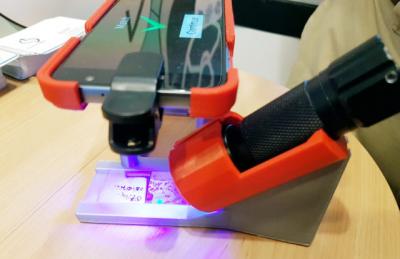Researchers at Lancaster University’s tech start-up Quantum Base are working on a graphene-based identity tag that can be scanned using a smartphone, to provide a possible solution to the fake goods problem that is causing worldwide financial damage on a grand scale.

The researchers, who are showcasing their work at the Royal Society’s Summer Science Exhibition, have designed a tag that can be verified by the end user using a smartphone. While other authenticity identifiers exist, like holograms, security inks and chemical or physical markers, this new system relies on graphene to make it unique. The team explains that the 2D nature of graphene means that even the tiniest imperfections, caused by the smallest of changes in the structure of an atom, can be identified. It also makes replicating the tag hard for fraudsters, if not impossible.
This unique tag comes with a track-and-trace ability and can be turned off at any point if the product is reported lost or stolen. The scientists say these nano-scale tags can also be made to be edible and coated onto medicines, potentially eliminating the problem of counterfeit pills and save human lives in the process. They could also be used in the Internet of Things devices to help consumers identify the real goods from their fake counterparts.
The patented technology is expected to be available to the public next year.

